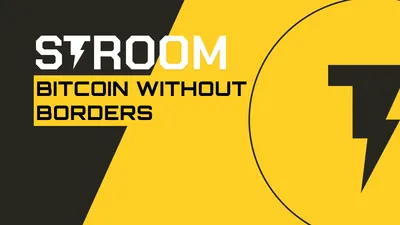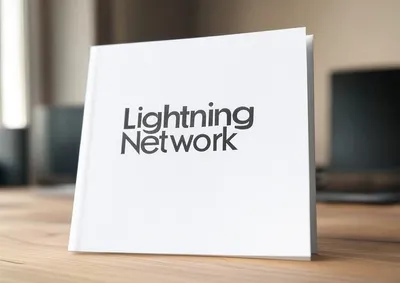Exploring the Lightning Network Ecosystem: Major Implementations and Wallets
Discover the variety of Bitcoin Lightning Network's most popular implementations and wallets, from non-custodial to custodial choices, and learn about their distinctive features and advantages.
•
10 min read

In our previous blog post, we delved into the transformative power of the Bitcoin Lightning Network. This new piece continues our series of educational articles by exploring the various implementations and wallets within the Lightning Network ecosystem.
Lightning Network Implementations
A Lightning Network implementation is a specific piece of software that enables the operation of a Lightning node and facilitates participation in the network. These implementations are developed in various programming languages and provide the necessary tools and protocols to create, manage, and close payment channels, as well as route transactions across the network.
Although each implementation provides distinct features and designs, they all adhere to the same standards outlined by the Basis of Lightning Technology (BOLT) specifications, a crucial element for ensuring interoperability between different LN implementations that allows them to work seamlessly together.
Lightning Network Daemon (LND)
Developed by Lightning Labs, LND is one of the most popular implementations of the Lightning Network. It is written in Go and offers a complete set of features, including node management, channel management, and an API for building applications on top of the Lightning Network. LND is known for its robustness and wide adoption in the LN community.
LND incorporates a modular architecture, allowing for the integration of different back-end chain services such as btcd, bitcoind, and Neutrino. This flexibility is crucial for developers who need to tailor their nodes to specific use cases or environments. One of LND's standout features is its support for Atomic Multi-path Payments (AMP), which allows payments to be split into multiple smaller parts and routed through different paths, increasing the likelihood of successful transactions and improving overall network efficiency.
Security and privacy are also key focuses of LND. The implementation includes features such as remote signing, which separates the wallet into two instances—one holding only public keys and another managing private keys—enhancing the security of the node. LND also supports the use of hardware wallets, like Ledger and Trezor, for secure storage of private keys, as well as the Tor integration for improved network privacy, allowing nodes to operate more securely in a distributed environment.
Performance optimizations are another area where LND excels. Recent updates have introduced in-memory pathfinding, significantly speeding up the process of finding payment routes and reducing latency. Additionally, LND has implemented Taproot channels, which enhance on-chain privacy and efficiency by making channel transactions indistinguishable from regular single-sig Bitcoin transactions. Upcoming versions promise more advancements based on Taproot Channels, such as Taproot Asset Channels, which will facilitate the transfer of Taproot Assets over the LN. *
For developers and advanced users, LND offers extensive documentation and a supportive community. It also provides tools like Lightning Terminal, Loop, and Pool, which facilitate liquidity management and channel operations. These features make LND a versatile and powerful choice for those looking to leverage the Lightning Network for scalable and efficient Bitcoin transactions.
* Lightning Labs announced the release of Taproot Assets on Lightning, the first multi-asset Lightning protocol on mainnet, on July 23, 2004.
Core Lightning
Developed by Blockstream, a blockchain technology company led by Dr. Adam Back, the renown cypherpunk and the inventor of the Proof-of-Work consensus algorithm, Core Lightning (formerly known as C-lightning) is a lightweight, modular Lightning Network implementation written in C. It focuses on performance and interoperability, providing a highly customizable and efficient platform for developers. Core Lightning has been in production use on the Bitcoin mainnet since early 2018 is designed to be highly configurable, capable of seamless integration with other Bitcoin infrastructure.
Optimized for performance and scalability, Core Lightning is capable of handling large numbers of channels and transactions efficiently, making it suitable for various scales of operation. It also emphasizes security with encrypted communications and breach prevention mechanisms such as Watchtowers, while its extensive documentation and supportive community make it developer-friendly. Overall, Core Lightning is a powerful tool for building and operating Lightning Network nodes, enhancing Bitcoin's scalability and transaction capabilities.
Eclair
Eclair, developed by French company ACINQ, is another popular Lightning Network implementation written in Scala, designed to be robust and user-friendly, particularly for businesses and service providers. Its primary strengths lie in its simplicity, security, and ease of integration, making it an attractive option for those looking to adopt Lightning Network technology.
Eclair is known for its scalability and performance, capable of handling a high volume of transactions efficiently. This makes it a reliable choice for businesses requiring robust infrastructure. The platform’s user-friendly design ensures that both technical and non-technical users can set up and manage it with ease, reducing the barrier to entry for integrating Lightning Network capabilities.
Security is a core focus of Eclair, with features such as encrypted communications and secure channel management protocols to protect user funds and data.
LDK
The Lightning Development Kit (LDK), formerly known as rust-lightning, is a comprehensive and customizable implementation of the Lightning Network protocol packaged as a software development kit (SDK). It is designed to simplify the creation of Lightning applications by providing a full-featured Lightning implementation that can be seamlessly integrated into various projects.
LDK offers extensive flexibility and customization, allowing developers to tailor the Lightning Network to their specific needs, whether for mobile wallets, server-based custodial apps, or other specialized applications. It supports running multiple nodes, making it suitable for server or custodial services, and can be efficiently integrated into existing infrastructures.
One of LDK's notable strengths is its capability to run on mobile devices and resource-constrained environments like point-of-sale (PoS) systems and Internet of Things (IoT) devices, highlighting its versatility. This flexibility ensures that it can be used in a wide range of applications, from simple wallets to complex, multi-node management systems.
In essence, LDK is a powerful tool for developers aiming to incorporate Lightning Network functionalities into their applications, offering the necessary resources and support to facilitate fast, low-cost Bitcoin transactions.
Electrum
Electrum is a popular (someone said OG?) Bitcoin client renowned for its emphasis on user privacy and security. It operates through a decentralized network of public servers, such as ElectrumX, which are Bitcoin full nodes that index the blockchain and facilitate efficient querying of Bitcoin addresses. Users have the flexibility to connect to these public servers or run their own private servers, enhancing control and security.
In July 2020, a Python implementation of the Lightning Network was integrated into the Electrum wallet, enabling off-chain transactions that significantly reduce costs and improve speed. The implementation is open-source and released under the MIT license, underscoring Electrum's commitment to transparency and community collaboration. The use of Python also makes this implementation accessible and customizable for a wide range of developers.
In summary, Electrum’s Lightning Network integration enhances transaction capabilities while maintaining a strong focus on privacy and security. Its flexible server options and open-source nature make it a robust and versatile choice for Bitcoin users looking to leverage the advantages of the Lightning Network. For more information, you can visit the Electrum documentation.
Lightning Network Wallets
Lightning Network wallets are essential tools for leveraging the benefits of the Lightning Network, providing users with faster, cheaper, and more scalable Bitcoin transactions. Often integrated with regular Bitcoin wallets, they manage off-chain payment channels and ensure interoperability with other Lightning Network wallets.
Before we delve into some popular Lightning Network wallets, it's important to understand how they manage users' funds:
- Non-custodial LN Wallets: These wallets do not take possession of users’ money. Instead, users have full control over their funds and the private keys that secure them. With a non-custodial wallet, users act as their own banks, ensuring that only they can access and manage their Bitcoin. This provides greater security and privacy, as there is no reliance on a third party to safeguard the funds.
- Custodial LN Wallets: These wallets take possession of users’ money, similar to how a bank holds funds for its customers. In this arrangement, the wallet provider manages the private keys and has control over the users' Bitcoin. While this can offer convenience and ease of use, the downside is that users must trust the provider to securely handle their funds and execute transactions on their behalf. Custodial wallets can be seen as Bitcoin banks, where the responsibility for fund security lies with the service provider rather than the individual user.
BlueWallet
BlueWallet is a user-friendly non-custodial wallet designed for both regular Bitcoin and Lightning Network transactions. “Forged in the ashes of the 2017 fork wars,” it offers a seamless experience for users, with a simple interface and robust features, including support for multiple wallets, watch-only mode, and integration with hardware wallets.
Utilizing the LND implementation for its transactions, BlueWallet ensures fast and efficient payments. With both mobile and desktop support, BlueWallet is ideal for both beginners and advanced users.
Phoenix Wallet
Developed by the ACINQ development team, Phoenix Wallet is a next-generation non-custodial Lightning Network wallet focusing on simplicity and ease of use. It automatically manages channels and fees, providing a smooth experience for users.
Additionally, Phoenix Wallet offers full control on inbound liquidity, better predictability of channel management fees, as well as trustless zero confirmation swaps, meaning that as soon as the transaction sending funds to the swap-in address has been confirmed, they will instantly be usable.
Breez Wallet
Breez Wallet is another popular non-custodial Lightning Network wallet that aims to provide a seamless user experience. Using a forked version of LND and Neutrino, a lightweight client protocol for the Bitcoin and Lightning Network, Breez runs a full Lightning node under the hood while also offering users the convenience of seamless on-the-fly channel creation. When a recipient lacks inbound capacity, Breez automatically opens zero-confirmation channels, enabling immediate transaction capability without waiting for blockchain confirmation. This process involves issuing dual invoices, intercepting payments, and instantaneously funding the recipient's channel, all while charging a minimal service fee for this convenience.
Additionally, Breez Wallet features built-in point-of-sale (POS) capabilities, making it ideal for merchants and businesses. It also supports podcast streaming and other microtransaction use cases, highlighting its versatility.
Zeus Wallet
Zeus is not exactly what you call a traditional wallet but rather a mobile application for managing Lightning nodes and making Lightning payments. Unlike typical wallets, Zeus Wallet does not operate its own node - users must instead connect it to an existing node, which can be challenging for beginners. However, for those who want to run their own node, Zeus Wallet is a valuable tool.
The app is open-source and non-custodial, supporting both the Lightning Network and the main Bitcoin network. It emphasizes privacy, offering Tor connection and a privacy mode that hides sending data. This makes Zeus Wallet a strong choice for privacy-conscious users looking to manage their own Lightning nodes.
Blink
Originally created in El Zonte, El Salvador, Blink is a user-friendly Lightning Network wallet designed to facilitate quick and efficient Bitcoin transactions. It aims to provide a seamless experience for users by offering a straightforward interface and robust security features. With Blink, users can manage their Bitcoin and LN funds effortlessly, enjoying the benefits of fast, low-fee transactions.
The wallet emphasizes ease of use, making it accessible to both beginners and advanced users, and it supports features like QR code payments, invoice creation, and transaction history tracking. Blink is a convenient tool for anyone looking to leverage the Lightning Network for everyday Bitcoin transactions, although one notable downside is that it’s a custodial wallet, meaning the wallet provider holds the private keys and controls the funds, not the user.
Additionally, Blink offers a merchant interface that functions as a Point-of-Sale (POS) system for accepting Bitcoin payments, making it a versatile tool for both personal and business use. Unlike Chivo, the official wallet exclusive to El Salvadorians, Blink is available to users worldwide.
Key features of Blink Wallet include:
- Multi-language and multi-currency support
- Stablesats: An open-source project creating a "synthetic USD" through a derivatives trading strategy, allowing users to receive, send, and hold funds in a USD-equivalent account.
- Localized map: Displays where users can spend their sats.
- Phone number login
- Integration with Nostr for tipping
The app also caters to those new to Bitcoin, offering an "Earn and Learn" section where users can earn sats by learning about Bitcoin.
Wallet of Satoshi
Wallet of Satoshi is a custodial Lightning Network wallet designed for ease of use and quick setup. It enables users to send and receive Bitcoin instantly without the need to manage channels or worry about liquidity. This makes it an excellent choice for those who want to leverage the benefits of the Lightning Network without dealing with its technical complexities.
Beyond its simplicity, Wallet of Satoshi provides a seamless user experience with a straightforward interface that allows even beginners to start transacting quickly. As a custodial wallet, it handles all the backend technical details, including channel management and liquidity provision, ensuring that users can focus on making transactions without any technical hurdles.
Wallet of Satoshi is designed with pretty robust security measures to protect users' funds, though it's important for users to be aware that, as with any custodial service, they do not have full control over their private keys.
Overall, Wallet of Satoshi offers a practical solution for those looking to use the Lightning Network for fast and cost-effective Bitcoin transactions. Its user-friendly approach makes it accessible to a broad audience, from beginners to those who prefer a hassle-free experience.
Muun
Muun is a non-custodial Bitcoin and Lightning Network wallet known for its strong focus on security and user-friendly experience. It allows users to send and receive Bitcoin through both traditional on-chain transactions and the Lightning Network, providing flexibility and speed depending on the user’s needs.
Muun Wallet stands out for its advanced security features, including multisignature protection and multi-factor authentication. These features ensure that users' funds are safeguarded against potential threats while still maintaining ease of access and usability. Unlike custodial wallets, Muun Wallet gives users full control over their private keys, ensuring that they are the sole owners of their Bitcoin.
The wallet’s design is intuitive, making it accessible to both beginners and experienced users. Muun simplifies the complexities of using the Lightning Network, automatically managing liquidity and channel creation behind the scenes, so users do not need to understand the technical details to benefit from fast and low-cost transactions.
Muun Wallet also supports seamless backup and recovery processes, allowing users to restore their wallet and funds using a simple recovery code. This ensures that even in the event of device loss, users can quickly regain access to their funds.
Overall, Muun Wallet provides a secure and user-friendly solution for managing Bitcoin and Lightning Network transactions. Its emphasis on security and ease of use makes it an excellent choice for anyone looking to leverage the benefits of both on-chain and off-chain Bitcoin transactions without sacrificing control over their funds.
*****
We hope you've found this article helpful. To learn more about Stroom, access detailed information about our technology, or explore how you can join the ecosystem, visit the following resources:
Official website: https://stroom.network/
Whitepaper: https://stroom.network/Primer.pdf
Twitter (X): https://x.com/StroomNetwork
Discord: https://discord.gg/DZ53WjDXz9
Telegram: https://t.me/stroomnetwork

Stroom DAO
View our other posts

Bitcoin Without Borders: Unlocking Bitcoin's Multi-Chain Potential
Since the birthday of the first Bitcoin block on January 3, 2009, a new era of financial assets has begun - the cryptocurrency era. Unmatched security, permissionlessness, and decentralization cemented Bitcoin'
Stroom DAO

Lightning Network in 2025: Bitcoin’s Transformation into Everyday Money
Bitcoin’s Lightning Network is transforming from an experiment into a global payment system, making everyday transactions faster and cheaper.
Stroom DAO

Lightning Network: Celebrating 9 Years of Innovation
The Lightning Network whitepaper was unveiled on January 14, 2016, introducing a transformative layer atop Bitcoin for instant, scalable transactions.
Stroom DAO